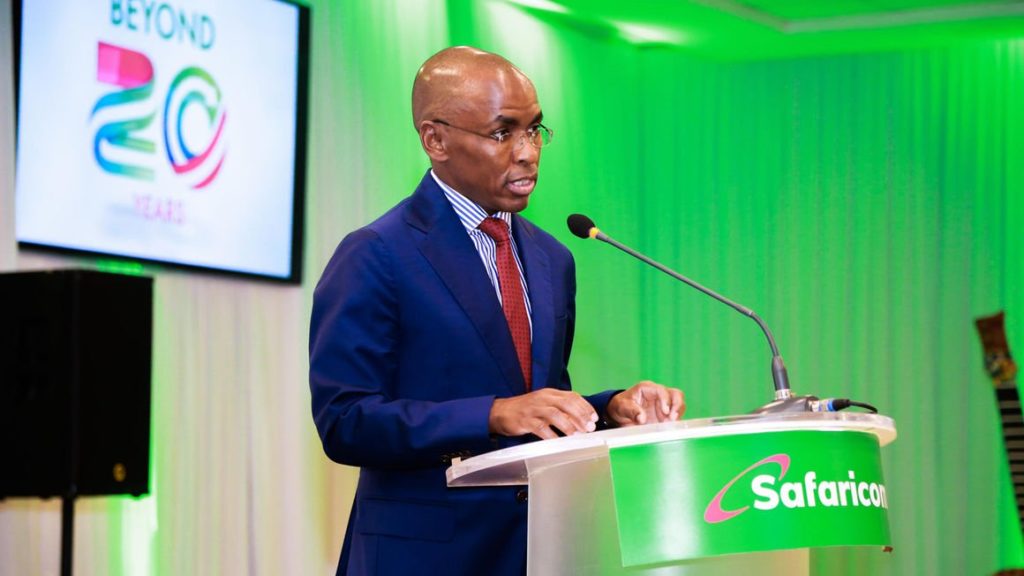Safaricom CEO Peter Ndegwa. PHOTO | POOL Safaricom is eyeing billions of shillings in annual revenues from installing smart metering systems for public water companies to help them cut leakages and theft.
The State-controlled utility firms suffer from annual system losses, with an average of 47 percent of the water put into their distribution network not billed due to leakages, metering inaccuracies and theft.
Safaricom is offering technology to track water use, leakages, theft and remote reading of meters in exchange for a share of the recovered revenues.
“We do have the technology that we believe can help utility companies of which Kenya Power is one of them and also water companies to be able to reduce the level of losses by creating transparency in distribution,” Safaricom CEO Peter Ndegwa told the Business Daily in an interview.
This is part of the telecoms operator’s plan to diversify its incomes from voice, short message services, cash transfers and payments.
Safaricom is already talks with Kenya Power to instal a Sh31.7 billion smart metering system for the utility to slash power losses in a deal that could potentially earn the telco Sh53 billion over eight years.
Under a draft agreement, Safaricom is set to earn 75 percent of the additional sales or Sh53 billion, with Kenya Power taking the remaining Sh17.9 billion.
It has the potential to earn close to Sh8.7 billion annually if it deploys the smart meters in the water sector and adopt the 75:25 revenue share model.
The Water Services Regulatory Board (Wasreb) says utilities lost water worth Sh11.6 billion in the year to last June due to leakages and theft.
Safaricom will build, operate and then transfer the smart grids to the water firms after an agreed period. It will make the initial investment required.
Safaricom did not provide additional comment on the proposal for the water firms.The telecoms operator is a licensed applications provider and it wants to use its extensive fast Internet infrastructure to support the proposed smart grids.Water companies have been struggling with mounting losses from leakages, theft and ageing network, which are draining almost half of water generated.Wasreb says that 21 counties lost more than 50 percent of the water they produced, contributing to an increase of Sh6 per unit cost of water billed on average.This has seen companies pass the cost to consumers, with prices having risen to Sh93 for every cubic metre consumed last year, up from Sh87 in 2019.The regulator […]
